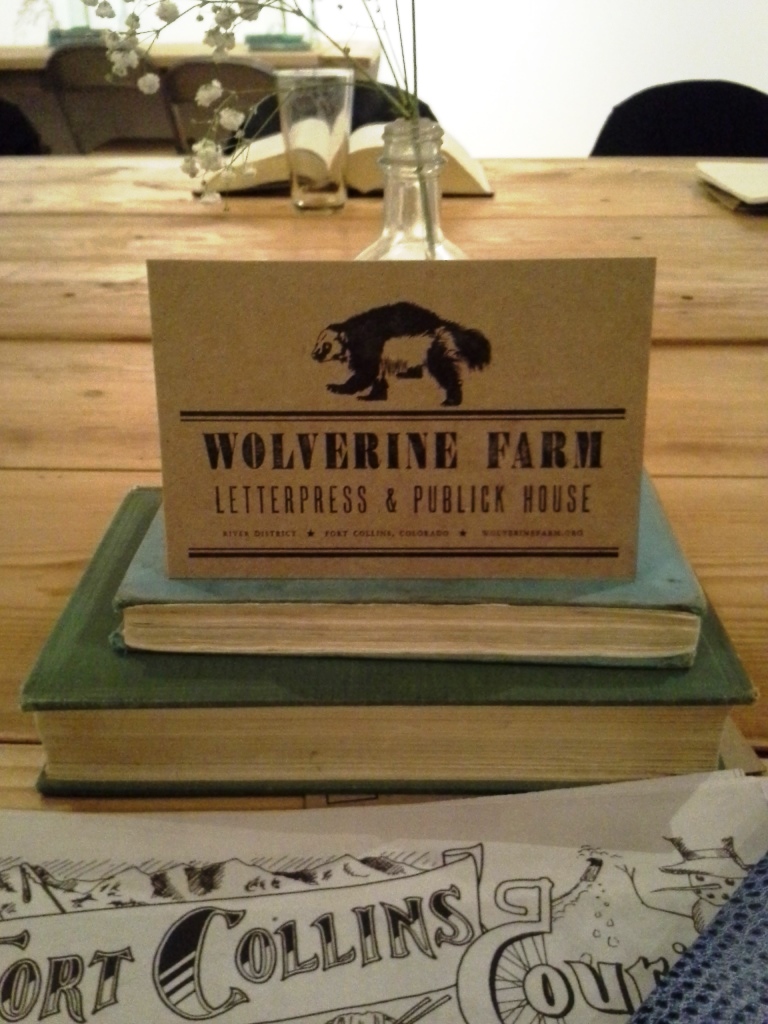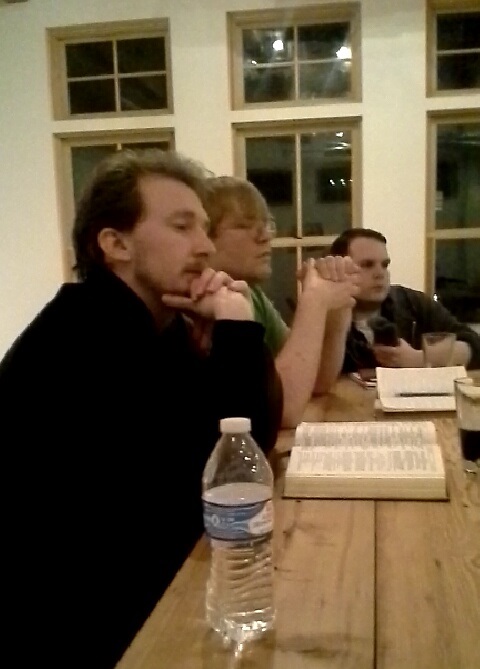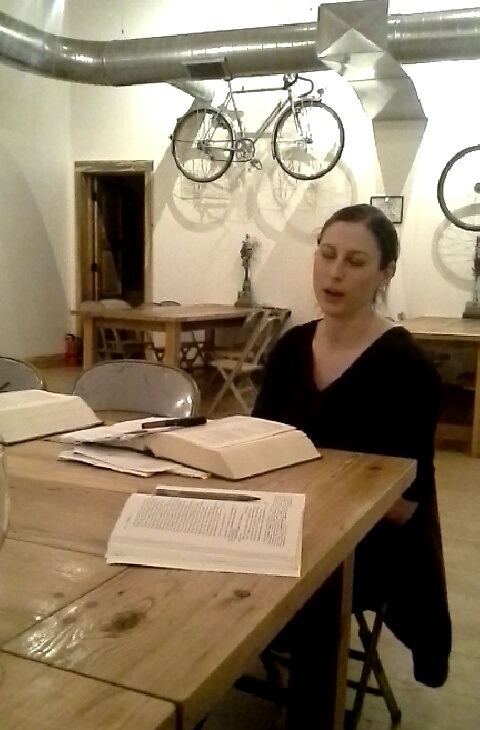~by Beth Campbell, English Department Communications Intern

For centuries before our own, it was not Instagram or Netflix or the latest celebrity gossip that captivated the mind. It was not whatever so-and-so tweeted or posted or funny cat videos. Evenings were spent surrounded by good company steeped in intelligent conversation. Night lent her dark robes to block out anything that could disturb such delight and her starry skies gave the atmosphere the sensation of possibility. Anything could happen on these nights. These were the times that inspired Keats, Shelley, Whitman, Tennyson, Eliot, Pound… It was nights like this one that inspired greatness.

By now, I was no stranger to the second story of the Wolverine Letterpress & Publick House. I made my way up the creaking wooden stairs with my overly sugary tea in my hand and my copy of Shakespeare’s Macbeth in the other. The loft was just as huge as I remembered, lofted ceilings stretching heavenward and a wall of windows to welcome in the stars from their ethereal perch. The group had already started to gather, conversation buzzing between friends and introductions, like my own, being tossed to newcomers. Not a phone, tablet, laptop, or any mechanical device could be seen, but the two tables that had been pushed together were covered with books, bookmarks, sticky notes, pens, and notebooks wedged between pints of beer and mugs of steaming coffee.The only notifications we would be getting tonight would be scrawled in the margins of our notes or found on rambling, but self-deemed important, tangents.
With this, the Rekindle the Classics bookclub came to order. The club is the brain child of Lara Roberts, a graduate student here at Colorado State University, under the supervision of Ellen Brinks, a professor here in the English Department. The goal of the club is to revive the reading of classic literature and the discussion of its themes, characters, and impacts in our world, a very noble cause in a society that has become centered on the brevity and instant gratification of formulaic modern texts. And may I say, the conversation sparked in that room was enough to fuel me as a reader and writer for weeks to come.

Time lost all relevance when the first few lines of the play were read. It began subtly, with all in attendance dancing around the underlying themes and addressing scenes for clarification. Lines of conversation spun themselves around quotes and couplets, weaving the English language into a spell that kept all else at bay. The room seemed to give way to the walls of Inverness and Macbeth and his wife plot the murder of the noble King Duncan. It became a battle of will against madness, of nobility against usurper, as the debate rose into a scholarly frenzy. Not all of us were students or professors. Some were community members, others poets and writers. Yet we each brought with us a distinct view on the play and our own expertise. The man who wore a replica of Aragorn’s ring from Lord of the Rings focused on the social critique of the play, addressing the role of a king and what kingship really meant. The stunning European woman with a think accent and handcrafted fountain pen remarked on Shakespeare’s use of poetic devices whenever the witches came onstage. All of us in that room were magicians, entwining words and meanings to create significance. We spoke the same language, a language that many have used before us, yet few understand today. We played with the supernatural and addressed the surreal. The heavens could have been crashing down outside, but the walls of our incantations would have left us oblivious. We had found paradise, and none of us were about to question that.
I left blinking the depths of that world from my eyes, my mind swirling with so many new ideas. In that room, we did so much more than discuss the wonder that is Macbeth. We were forced to think beyond the ease and convince of our technological society. We dove instead into the realm words, a kingdom brimming with power, meaning, and elegance. We looked back into the classics to see ourselves. In that moment, we were infinite, bathed in the fires of dialogue. and ravished by the author’s legerdemain. We were readers at the mercy of the words, and we loved every second of it.
The next session of Rekindle the Classics will meet this Thursday, April 14, at 6:30 at the Wolverine Letterpress & Publick House, (316 Willow Street, Fort Collins). There are two sessions left in the season:
April 14: Gulliver’s Travels by Jonathan Swift
May 18: East of Eden by John Steinbeck
Rekindle the Classics, the new and creative collaboration between Poudre Libraries, Colorado State University’s Department of English and Wolverine Farm Publick House. A series of free, open-to-the-public discussions about classic literature.
For more information, see monthly calendar at www.poudrelibraries.org or call 970-221-6740